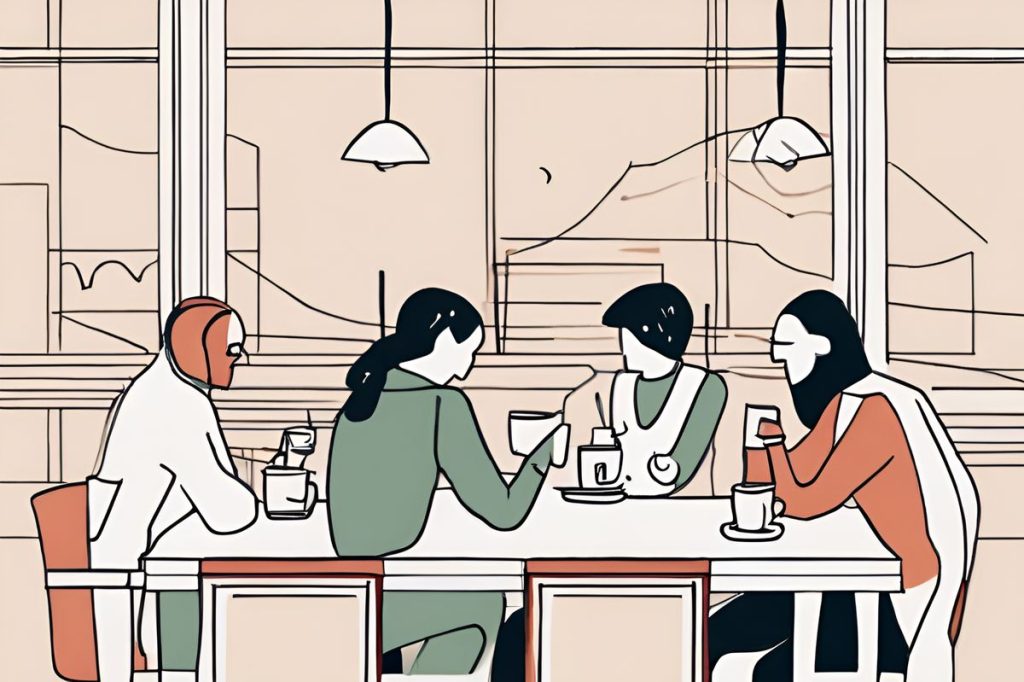Coffee culture in Cyprus is a vibrant social tradition, from traditional kafeneia to trendy nitro-coffee shops. Despite rising prices, Cypriots’ love for coffee remains unwavering, reflecting a deep cultural bond that transcends economic challenges.
What is the significance of coffee culture in Cyprus?
Coffee culture in Cyprus is a cornerstone of social life, reflecting a deep cultural appreciation. Despite economic challenges and rising prices, the resilience of this tradition is evident in the thriving coffee scene. From traditional kafeneia to trendy nitro-coffee outlets, Cypriots’ commitment to their coffee ritual signifies a bond that transcends economic factors.
Cyprus’ Coffee Culture: A National Affair
Cyprus is celebrated for its lively coffee culture, a vital part of its social identity. The island’s high streets brim with coffee outlets, ranging from traditional local cafes to international chains. However, the recent trend is the rise of specialty coffee shops. These hipster-friendly spots serve high-quality beans and innovative brewing techniques, such as nitrogen-infused coffee. Found in various Limassol cafes, this nitro-coffee is a creamy, sweet, and less acidic variant of the traditional cup, providing an alternative for those seeking milk or sweeteners.
The caveat to this coffee innovation is cost. With nitro-coffee prices averaging between €5 and €7, they are comparable to some cocktail prices. In comparison, a regular cappuccino in Cyprus costs around €3.27, surprisingly higher than in traditional coffee cultures like France and Italy, with their averages at €2.97 and €1.58, respectively.
The Price of Coffee: A Balancing Act
Despite the upward trend in coffee prices, Cypriots’ love for their daily brew seems undeterred. Danae, a local coffee aficionado, admits to spending €10 on coffee in a day while having access to a Nespresso machine at home and work. This reflects the growing demand for delivery services amongst offices and homes, even as prices have been climbing since 2019.
Kafeneia, the traditional Cypriot coffee shops, maintain their charm as community havens offering more than just caffeine. They are social hubs for board games, music, and intergenerational laughter, where time slows down and relaxation is key. Here, a game of tavli or a Cypriot coffee is enjoyed with a collective appreciation for downtime, echoing the island’s rich heritage.
Cultural Nuances and Economic Realities
The coffee culture in Cyprus contrasts with Italy’s fast-paced espresso shots. In Italy, over 90% of the population drinks coffee daily, adhering to customs like forgoing milk post-morning hours. In Cyprus, these rules are relaxed, and the array of milk alternatives caters to diverse preferences, albeit with an added cost.
Rent hikes and inflation are affecting local businesses. For instance, a coffee shop owner in Limassol cited a 10% rise in rent, highlighting the challenge of balancing rising operational costs while maintaining customer-friendly pricing. With Numbeo reporting only a €1,000 difference between renting a flat in Limassol and London, and Londoners earning significantly more post-tax, the pressing question is whether this disparity calls for a salary increase or a cap on soaring rent prices.
The Resilience of the Coffee Scene
Despite these economic challenges, Cyprus’ coffee market, with an estimated revenue of €86.5 million, is expected to grow. Caique, a barista at Gloria Jean’s in Nicosia, has noticed only slight price increases since 2021, which he attributes to the pandemic’s impact. Nevertheless, he remains hopeful, citing loyal customers and an increasing number of visitors as positive signs.
The coffee culture in Cyprus is resilient, underpinned by a robust community of enthusiasts. The commitment to the coffee ritual remains unfazed by economic trends, signifying a cultural attachment that runs deeper than the price tag on a cup of coffee.
What is the significance of coffee culture in Cyprus?
Coffee culture in Cyprus is a cornerstone of social life, reflecting a deep cultural appreciation. Despite economic challenges and rising prices, the resilience of this tradition is evident in the thriving coffee scene. From traditional kafeneia to trendy nitro-coffee outlets, Cypriots’ commitment to their coffee ritual signifies a bond that transcends economic factors.
How does Cyprus’ coffee culture differ from other countries like Italy?
The coffee culture in Cyprus contrasts with Italy’s fast-paced espresso shots. In Italy, over 90% of the population drinks coffee daily, adhering to customs like forgoing milk post-morning hours. In Cyprus, these rules are relaxed, and the array of milk alternatives caters to diverse preferences, albeit with an added cost.
How are rent hikes and inflation affecting coffee businesses in Cyprus?
Rent hikes and inflation are affecting local businesses in Cyprus. For instance, a coffee shop owner in Limassol cited a 10% rise in rent, highlighting the challenge of balancing rising operational costs while maintaining customer-friendly pricing. With Numbeo reporting only a €1,000 difference between renting a flat in Limassol and London, and Londoners earning significantly more post-tax, the pressing question is whether this disparity calls for a salary increase or a cap on soaring rent prices.
Despite economic challenges, how is the coffee market in Cyprus expected to grow?
Despite economic challenges, Cyprus’ coffee market, with an estimated revenue of €86.5 million, is expected to grow. Baristas like Caique remain hopeful, citing loyal customers and an increasing number of visitors as positive signs for the future of the coffee scene in Cyprus. The commitment to the coffee ritual remains unfazed by economic trends, signifying a cultural attachment that runs deeper than the price tag on a cup of coffee.

